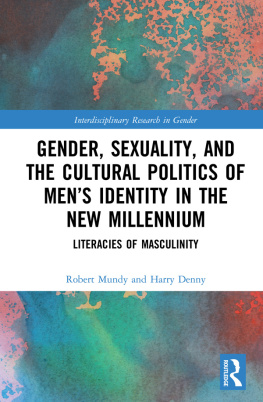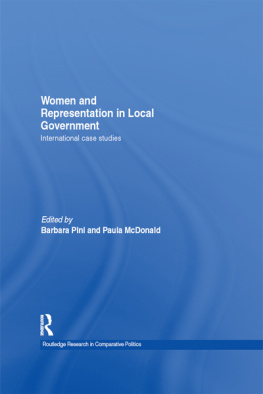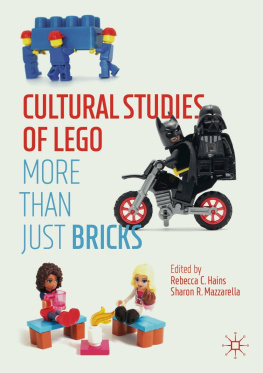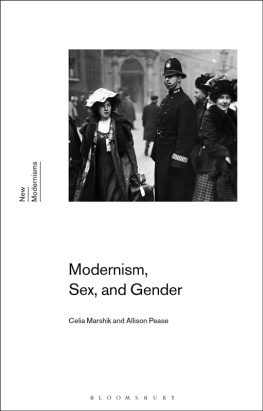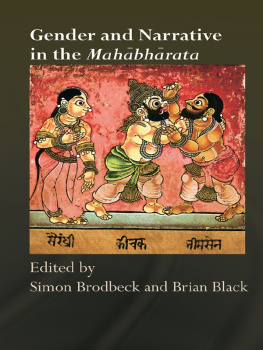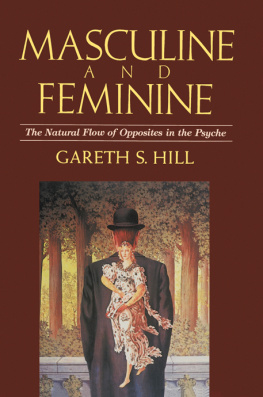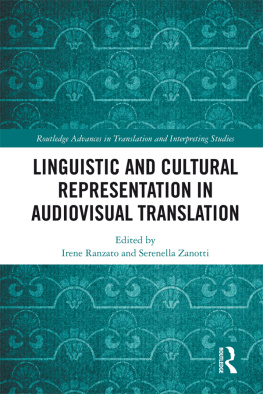FEMININE MASCULINE AND REPRESENTATION
This collection of essays makes an important contribution to debate on the role of representation in the social construction of the patriarchal gender order. It deals centrally with questions about sex and gender, subjectivity and signification. In her editors introduction Terry Threadgold confronts the scepticism of those resistant to the challenge which poststructuralist semiotics (that language stuff) poses to all branches of knowledge. She points out that these discourses about language, or semiosis, seem arcane only because they have not yet become part of everyday life, as have similarly specialist discourses like economics, government, sociology, biology. Exploring the dynamic intersections of feminist and poststructuralist enquiry, this work demonstrates powerfully new possibilities of resistance and transformation.
Susan Sheridan
Editor of Grafts: Feminist Cultural Criticism (Verso, 1988)
In the midst of current and often reactionary nostalgias for the old analytical categories and political certainties, this lucid collection deals a timely coup de grce to the unexamined assumptions which too often prevail in Australian intellectual debates. Informed by an awareness of global metropolitan theory and by a passionate committment to political change, these essays open up a new space beyond the dreary ping-pong of binary oppositions and separatist politics. No longer signifying the essentialism of an older dispensation, the sexed body returns to confound the certainties of masculine/feminine, to redefine a positive difference, a new autonomy for women, for men.
Sneja Gunew
First published in 1990 Allen & Unwin
Published 2020 by Routledge
2 Park Square, Milton Park, Abingdon, Oxon OX14 4RN
605 Third Avenue, New York, NY 10017
Routledge is an imprint of the Taylor & Francis Group, an informa business
Terry Threadgold and Anne Cranny-Francis, 1990 This book is copyright under the Berne Convention.
No reproduction without permission. All rights reserved.
All rights reserved. No part of this book may be reprinted or reproduced or utilised in any form or by any electronic, mechanical, or other means, now known or hereafter invented, including photocopying and recording, or in any information storage or retrieval system, without permission in writing from the publishers.
Notice:
Product or corporate names may be trademarks or registered trademarks, and are used only for identification and explanation without intent to infringe.
National Library of Australia
Cataloguing-in-Publication entry:
Feminine/masculine and representation.
Bibliography.
Includes index.
ISBN 0 04 610018 0.
1. Femininity (Philosophy). 2. Masculinity (Philosophy).
3. Femininity (Psychology). 4. Masculinity (Psychology).
5. Sex differences (Psychology) in literature. I.
Threadgold, Terry. IL Cranny-Francis, Anne
305.3
Library of Congress Catalog Card Number: 89-84872
Typeset in 10/11 pt Ballardvalle by Times Graphics, Singapore
ISBN-13: 9780046100186 (pbk)
Jennifer Ash is a postgraduate student in the English Department at the University of Sydney. She is at present researching the religiosity of the late Middle Ages, using a theoretical framework of psychoanalysis, semiotics and French feminisms.
Virginia Blain is senior lecturer in English at Macquarie University. She was a visiting fellow at the Humanities Research at the Australian National University in 1986, during the Feminist year. She is currently completing work on the nineteenth-century section of A Feminist Companion to Literature in English, a critical reference to women from 1300 to the present, to be published by Batsford (UK) and Yale (US) in 1989.
Rosi Braidotti has a BA from the Australian National University and a PhD in Philosophy from the Sorbonne. She is professor of Womens Studies and chair of the Department at the University of Utrecht in the Netherlands. She has worked and lived in Paris and has published on issues related to feminism, philosophy and psychoanalysis. She is the author of Patterns of Dissonance, an essay on women in contemporary French philosophy (forthcoming with Polity Press). She is on the editorial board of Womens Studies International Forum, Les Cahiers du Grif, Copyright and Differences.
Patricia Palmer Gillard is lecturer in Communications at the Canberra College of Advanced Education. In 1986 and 1987 she worked for the Australian Broadcasting Corporation as head of Research and Development for ABC-TV. She previously worked as a media consultant with her own business, Audience Views, as a lecturer in English Curriculum at the University of New South Wales, and as a high school teacher. Under the name Patricia Palmer she has published a book on children and television, The lively Audience: A study of children around the TV set (Allen & Unwin, 1986) and a report on TV viewing by teenage girls, Girls and Television (Sydney: Social Policy Unit, Ministry of Education, 1986).
Elizabeth Grosz teaches in the Department of General Philosophy at Sydney University. She is the author of Sexual Subversions: Three French Feminists (Allen & Unwin, 1988) and has co-edited (with Carole Pateman) Feminist Challenges: Social and Political Theory (Allen & Unwin, 1986) and (with Barbara Caine and Marie de Lepervanche) Crossing Boundaries: Feminism and the Critique of Knowledge (Allen & Unwin, 1988).
Michael Hurley teaches in the Faculty of Communications at the University of Technology, Sydney. His teaching and research interests are in recent Australian writing, science writing, textual theory and public images of science and technology. Much of that work focuses on gender, sexuality and sexual difference.
Gisela T. Kaplan of the School of Sociology, University of New South Wales, is the current editor (jointly) of the Australian and New Zealand Journal of Sociology. She has co-edited a book on Hannah Arendt, entitled Hannah Arendt: Thinking, Judgment, Freedom (Allen & Unwin: in press), is a regular contributor to the European journal Argument, has written for the Encyclopedia of the Australian People (ed. J. Jupp, Canberra, 1988), and has chapters in Australian Welfare: Historical Sociology (ed. R. Kennedy, Macmillan) and Feminist Knowledge as Critique and Construct (ed. S. Gunew, Methuen, 1988). With major training also in literature, psychology and history, and considerable stage experience in Europe (as an opera singer), she is a defender of interdisciplinary studies. She has a PhD from Monash University and has lectured widely on womens and migrants issues. At present she is at work on a book on current western European feminism.
Ross Poole was educated at Sydney University, the Australian National University and Oxford University. He now lectures on Marxism and social and moral philosophy at Macquarie University, Sydney. He has published articles in radical and academic journals and collections, and is at present completing a book entitled


